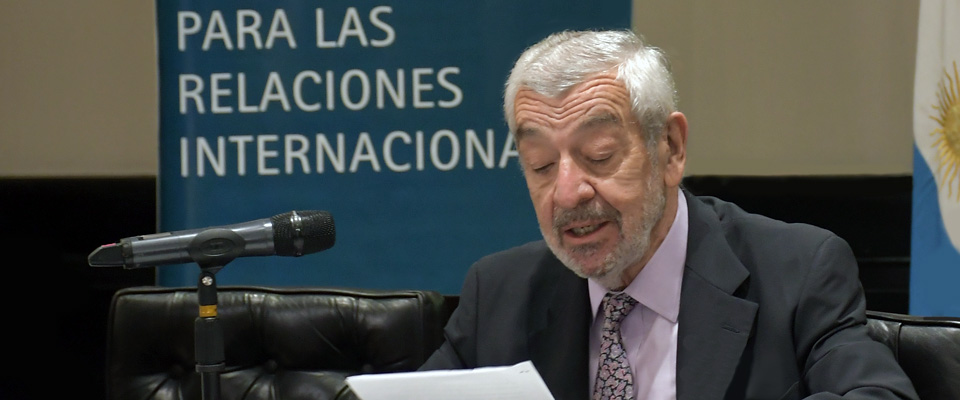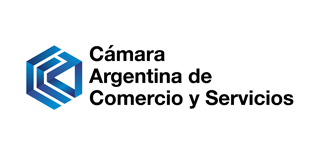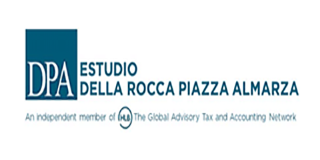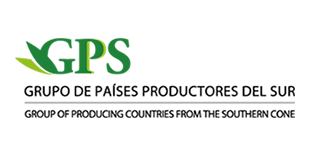COVID-19's Political and Socio-Economic Impact on Latin America and the Caribbean
By Lila Roldán Vázquez. May 29, 2020
The World Health Organization (WHO) has recently declared that the epicenter of the COVID-19's pandemic, caused by the Corona Virus, is currently in Latin America and the Caribbean, with 645.000 confirmed cases on May 22nd. This declaration is grounded on the vertiginous augmentation of cases and deaths in countries such as Brazil, Peru and Equator, as well as the progressive increase of those indexes in Argentina, Chile and Mexico, reflected in the Organization's statistics.
If the situation is already extremely delicate from the sanitary point of view, it becomes even more urgent when we approach the region's general overview. Latin America is not facing COVID-19's challenges in its best shape. Socio-economic conditions in countries of the region, as well as the resurgence of dissensions among Latin American countries based on divergent ideological conceptions, added to the institutional frailness that characterizes this region, are far from contributing to an appropriate framework for a coordinate and effective response to this new world menace.
Even if undoubtedly the pandemic's economic impact will reach, in a greater or lesser measure, the whole of Humanity, and will most probably be felt even stronger in our region, the political impact that it could have on our countries, depending on the respective governments' response to this unusual challenge, should not be discarded.
Crisis, temporary by definition, will not always alter the course of History in a radical way, but they can serve as an opportunity for authoritarian or populist trends to deepen, or they could serve to reveal pre-existent political tensions at the national level and towards other countries in the region.
In Latin America and the Caribbean, bilateral or regional misunderstandings based on their governments' ideological differences, add to situations of internal crisis, deepened by the pandemic's impact, in several of our countries.
In a letter made public on April 16th this year and signed, among others, by former Presidents of the region (Fernando Henrique Cardoso from Brazil, Ricardo Lagos from Chile, Juan Manuel Santos form Colombia and Ernesto Zedillo from Mexico), the authors alert on a possible weakening of our democracies, as a consequence of this crisis. And they assure that mutual confidence, transparency, rationality, and not populism or demagogy, are the path to follow in these uncertain times. According to the document, this crisis should serve, on the contrary, to fortify Latin American democracies.
The chronic fragility of our institutions and the recurrent grievances to the Rule of Law in the region, have conformed a negative scenery for our countries' progress, or for a solid insertion in the world economy that serves to our peoples' development. Either the preemptive preoccupation for stabilizing their economies and their national political systems, prioritizing these objectives to those of the region, or simply the lack of State policies oriented to integration processes, are all factors that have strongly conspired against regional concert and integration.
Once the pandemic arrived, few have been the instruments available and the actions adopted jointly to alleviate its effects. Within this framework, even unnecessary tensions have aroused in some privileged integration processes, such as MERCOSUL. Specially so, at moments when having effective regional mechanisms to concert policies and react rapidly is more urgent than ever.
The political impact in some of our countries is not despicable. In a framework of generalized institutional decay, we face serious risks of populist mechanisms to rise or authoritarianism to deepen in some States of the region.
The COVID-19 pandemic has contributed to the deepening of internal divergences, as happened in Brazil, or to the postponement of political definitions, as in the case of Bolivia.
As regards internal crisis, the most striking case is undoubtedly Brazil, where a situation of confrontation among State powers has occurred, a schism between the central government and some provincial governments has opened, and the polarization of society, divided on support or opposition to the sanitary and economic policies of the country's Presidency has deepened. In an unprecedented situation, more than thirty impeachment demands have been registered against President Bolsonaro, who has obtained international press coverage due to his peculiar attitude vis-a-vis both the pandemic and his opponents, defying the Parliament and the Federal Supreme Court and formulating crude critics to Governors and other State powers.
In parallel, the sanitary conditions in the country are deplorable, counting more than 25000 deaths and contagion focus in places with very deficient health systems, such as in the big urban "favelas" or in the Amazonian region, where the Mayor of Manaos have accused Bolsonaro of "genocide".
In other countries of the region, the pandemic has had transcendental electoral effects, as happened in Bolivia, where general elections originally scheduled for May 3rd have been suspended, delaying its celebration to a date still unknown, between June 28th and September 27th this current year.
Also in Chile, shaken by popular protests since the final months of 2019, deteriorating these last days, the constitutional referendum due to take place on April 26th has been postponed to October 25th 2020, in virtue of the pandemic.
For its part, due to the sanitary emergence caused by COVID-19, President Maduro is considering to postpone parliamentary elections originally planned to be celebrated this year in Venezuela, a socially and politically convulsed country, with its economy and health systems in an extremely precarious state.
On the other hand, we see an opposite situation in Mexico: the revocatory referendum opportunely approved by the Parliament to decide if President Lopez Obrador will continue in office, was due in the year 2022. However, in the face of opposition's critics of his handling of the COVID-19's crisis, and while announcing measures to cope with it, Lopez Obrador proposed that the referendum should be advanced to the year 2021 - though a date for it has not yet been determined.
Internal unrest may also have decisive effects on the countries' political futures; popular protest against measures adopted as well as their social and economic consequences, are multiplying in the region: Bolivia, Chile, Ecuador, El Salvador…or, in some cases, Governments' declarations on the pandemia are put in doubt, as it happens in Nicaragua, where the authoritarian features of the Government are being enhanced.
At the regional level, some differences among neighboring countries have also sparkled, due to border closings decided to impede the virus dissemination or to the respectively applied policies to counter the pandemic. We must nevertheless recognize that it has not been a phenomena exclusive to Latin America: in the first phase of the pandemic the European Union Member States' reaction differed from one of cooperation, characterizing itself instead by individual measures adopted by each State in order to protect its own citizens within its borders.
On April 2nd, the International Monetary Fund (IMF) published a report on the World Economic Prospects, in which it deemed very probable that, due to the "Great Confinement", which will cause a drastic contraction of growth, the world economy will experience the most acute recession since the Great Depression.
In the same spirit, the Economic Commission for Latin America and the Caribbean (ECLAC) considers that the pandemic will provoke the worst recession in the region's history, within a framework of economic deceleration, augmentation of poverty and of extreme poverty in 2019: from 30.1% to 30.8% and from 10.7% to 11.5% respectively.
Last April, ECLAC published a Special Report on possible effects of COVID-19, in which it warned: "Latin America and the Caribbean faces the pandemic from a position which is weaker than that of the rest of the world…the crisis' effects have led to predictions of at least a 1.8% fall in IBP, even if we cannot rule out that the pandemic' s development will lead to contractions between 3% and 4%, or even more".
On the other hand, a feature shared with many countries in different regions of the world, including the most developed ones, is that health infrastructures are generally unprepared to attend in a sufficient and efficient way the demands originated in the pandemic. Their proper conditioning and the equipment needed for detection and treatment of the virus, require an urgent injection of resources in the sanitary system, which will naturally alter the ordinary priorities in national budgets, thus having a direct impact on the region's growth.
The impact of pandemics on labour occupation rates in countries in general, and in Latin American countries in particular, is not negligible either. Just as an example, unemployment rates in Brazil grew to 12.6% last April, reaching a record of 12.8 million people unemployed: around 900.000 people have lost their jobs since the beginning of the pandemic, according to the Brazilian Geographic and Statistics Institute (IBGE).
This situation is similar in every country in the subcontinent, with the foreseeable consequences for their economies' recovery and for their populations' post-pandemic's quality of life. On Wednesday May 27th, the United Nations World Food Program (UNWFP) launched a warning on the increase of food insecurity in the region, indicating that, due to the corona virus pandemic, at least 14 million people could go hungry in Latin America.
Observing the region in the framework of the international scenery, we notice at first sight the retraction of the United States in its programs for sanitary or economic aide, since it is currently concentrated on recovering from the utterly serious health situation within its own borders, and on electoral priorities that motivate many of its Government's decisions. We have thus witnessed the closing of its borders to avoid refugees entering the country or, in these last days, the interdiction of entry to any person coming from Brazil.
Before that American retraction from its traditional area of interest, China has begun to deploy in Latin America and the Caribbean what it is called its "facial masks diplomacy".
China is currently the second commercial partner to the region and has surpassed the United States in several of its countries in that category. Nineteen Latin American States have already adhered to the Belt and Road Initiative (the new Silk Road), thus favoring increasing Chinese investments in energy and infrastructure projects in their respective countries.
After having been the first country in the world affected by the pandemia, and once it started overcoming its effects, China initiated a sanitary and economic offensive to re-position itself in the international arena. In that framework, and intending to improve its standing in the region and -why not?- setting an advantage in the area of influence of its great rival at a world level, it began offering technical assistance and medical supplies to various countries of the region: as an example, we can mention the sale to Haiti of eighteen million dollars in medical equipment or the establishment of aerial bridges with Mexico, Venezuela and Argentina for the provision of facial masks, detection kits and ventilators, among others.
The other significant partner of Latin America, the European Union, has not been specially present either, even if it has offered to the region part of the funding destined to combat the pandemia in third countries. From a total of 15,600 million euros allocated to lessen the crisis effects at a global level, 918 million euros would be ear-marked for Latin America, with the goal of improving the sanitary response to the crisis and for prevention and technical assistance.
It will be of great interest to observe how Latin America and the Caribbean will be positioned in the world scenario once this pandemic has been overcome, and if the countries in the region will be able to resume the path to sustainable growth through insertion strategies mutually agreed at the regional level.
Usually, crisis serve to reveal or detonate pre-existent problems. In our region, COVID-19 has put into evidence not only the insufficiencies of countries' health systems and, at a most general level, their delay in economic development, but also the weaknesses of their institutional systems and relations among their members.
It would be desirable that the profound effects of this pandemia can give birth to positive reactions from the respective national governments, that would enable our countries to overcome this new crisis in a framework of better democracy, enhanced respect of the Rule of Law and a renewed engagement with regional integration.
Ambassador Lila Roldán Vázquez, Former Under-Secretary for Latin American and Caribbean Affairs in the Argentine Ministry of Foreign Affairs. Head of the Group on Contemporary Studies on the Eurasian Space, C.A.R.I.


























